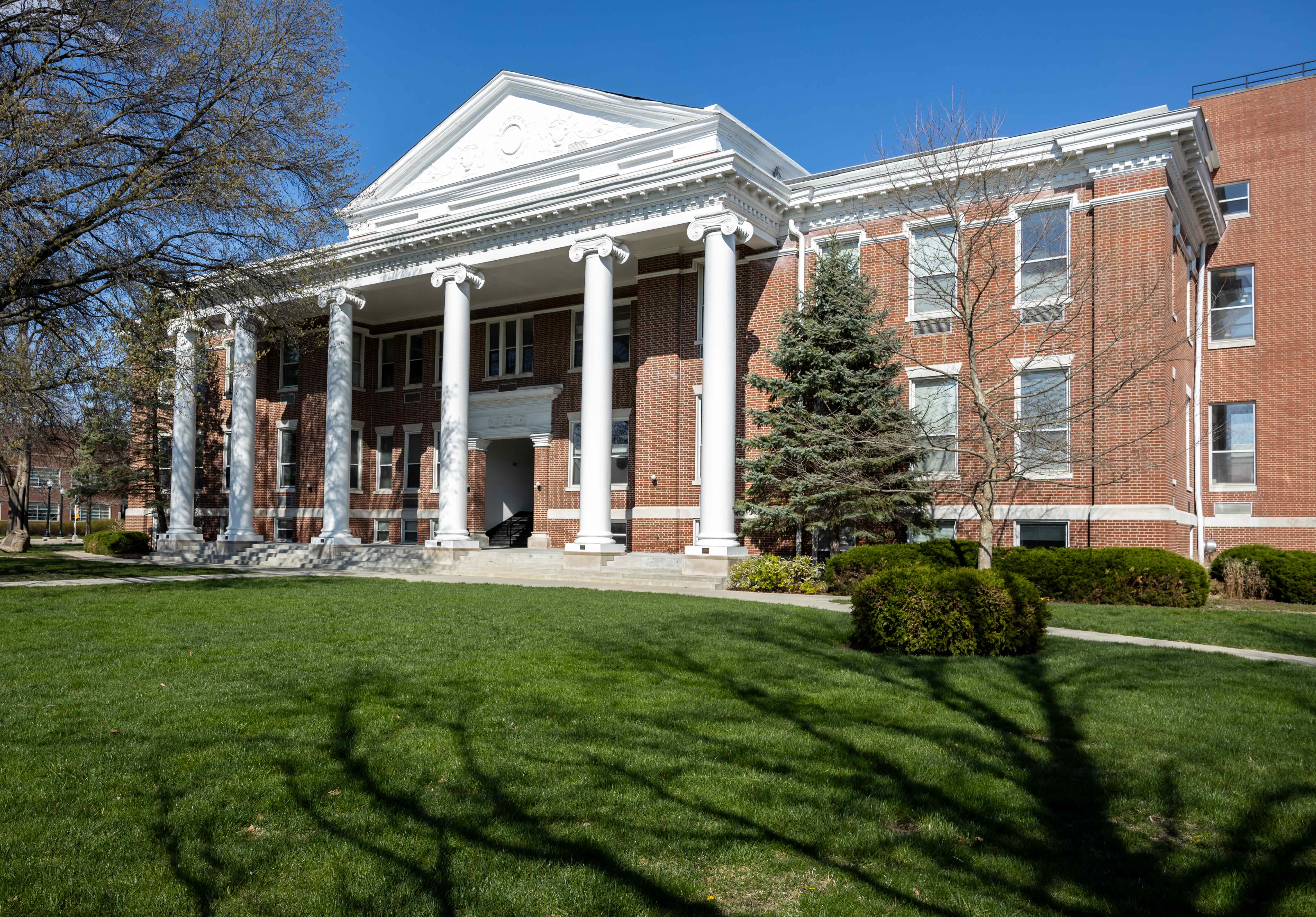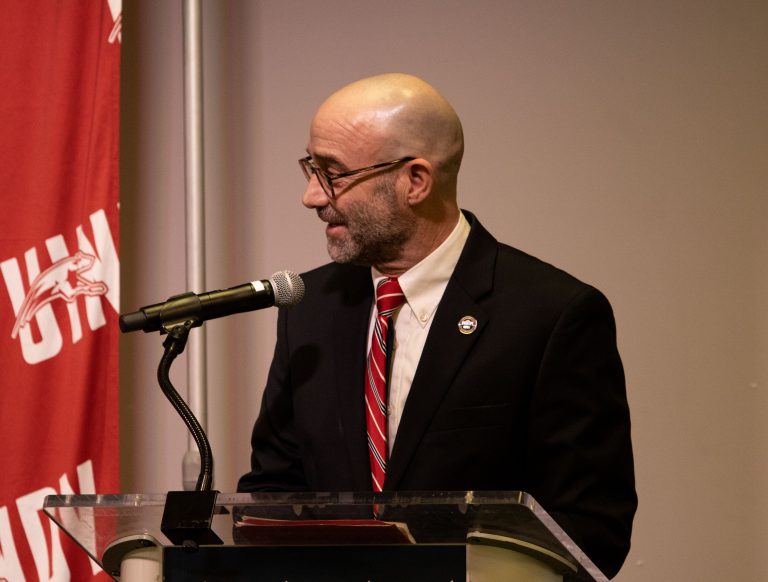
Editor’s Note: This story is a follow-up to a story titled “‘The Reflector’ denied access to university meeting” published on Nov. 25, 2024.
On Nov. 19, 2024, part of “The Reflector” staff was asked to leave a University of Indianapolis faculty senate meeting as it attempted to cover its proceedings.
The first paragraph of UIndy’s Faculty Constitution states: “The Board of Trustees, the Administration, the Faculty, the Staff and the Students are the five major constituencies that play significant roles in the functioning of the University of Indianapolis. Although the successful operation of the University depends upon the coordinated efforts of all five of these groups, each has their own particular functions, rights and responsibilities that differ from those of the others.”
UIndy operates under a shared governance model, meaning that certain items, like curriculum changes, are decided upon by faculty. According to Associate Professor of Communication, Faculty Senator and former Faculty Senate Vice President Darryl Clark, with many issues falling under faculty governance, the university administration serves in an advisory capacity. Clark said it works both ways.
“The administration has the power of the purse,” Clark said. “They get to decide where money gets spent, how it gets spent, et cetera. But the faculty, through the Faculty Senate, can have advisory authority.”
According to the faculty constitution, issues falling under faculty authority include, but are not limited to, standards for student admission, retention and academic conduct, creation of new academic programs, academic freedom and freedom of expression.
Additionally, the constitution defines who is permitted to attend university meetings such as the Faculty Senate, and students are permitted to attend at the senate leadership’s discretion. Generally, private universities like UIndy are not required to uphold First Amendment protections or state open meetings laws the same way public universities are, according to PEN America.
“The Reflector” Editor-in-Chief Mia Lehmkuhl engaged in a 5-month exchange with parties such as Faculty Senate President and Professor of International Relations Jyotika Saksena and the rest of the senate’s executive committee. After an in-person conversation with the executive committee, Lehmkuhl was permitted to attend part of the faculty senate meeting on April 15 to pilot a scenario in which student media could be regularly allowed to attend. However, at this time, it is unclear whether this will extend beyond the April 15 meeting. In addition, “The Reflector” has a history of attending meetings in the past, according to previous reporting — one of which is titled, “Faculty Senate approves alternate grading options,” during the COVID-19 pandemic. Additionally, a student in COMM 120: Experiential Journalism attended a senate meeting on Sept. 17, 2024. In terms of what influenced the senate decision in November, Assistant Professor of Sociology and Member of the Faculty Senate Executive Committee Liz Ziff said she thought it was a surprise for senators that “The Reflector” was present.
“I think given that people weren’t familiar with what the process could be, and also, because it is a forum where we can talk about a lot of potentially sensitive information, I think people were just trying to be extra cautious before deciding how to move forward,” Ziff said.
Clark said the senate has discussed the possibility of “The Reflector” staff attending meetings since January and believes there should have been a definite decision by this point. Additionally, Clark said he considers the student newspaper a crucial part of documenting UIndy’s history.
“Not only do I feel like it’s kind of disrespectful to the students on ‘The Reflector,’ but we’re debating this over and over again,” Clark said. “We’re beating a dead horse in the senate and wasting time of not only the senators, but all the administrators who attend these meetings.”
In terms of university administration’s involvement in the senate, Provost and Executive Vice President of UIndy Chris Plouff said he attends and participates in senate meetings to be the liaison between administration and faculty as an ex-officio member. Being an ex-officio member means he attends meetings, responds to questions and adds to discussions but does not vote on items.
“I work with the faculty senate to make sure that they’re kept informed, understand the things that we’re doing as an institution, so that they are knowledgeable about things that we’re considering, to bounce ideas off of them and get their feedback on things …,” Plouff said.
Plouff said discussions involving “The Reflector’s” presence at meetings, as well as student presence at large, have been robust and have included differences in opinion. According to Plouff, some believe students should have a place at senate meetings broadly; however, others believe that since potentially sensitive information, like discussing the potential of a new academic program, is discussed at said meetings, the press should not make such information public through publication and thus may not be let in.
“If students aren’t going to be there, that’s fine, but it will probably change what I’m able to share publicly, and that’s what I’ve shared with them, is that I can be more or less transparent,” Plouff said.
For Plouff, there is a place for “The Reflector” and students in general to be a part of the governance process. Plouff said there are many things for students to be engaged with and report on and that student presence at faculty governance meetings is decided by faculty. However, he said he does not see this as an issue involving free speech or press freedoms broadly or at private universities.
“At a private university, like any kind of a company or a private organization, the press doesn’t have just whatever access they want to any kind of discussions, whatever they go on in that organization,” Plouff said. “I mean, even within a public entity, you have some limits there to that. I mean, that’s much more of a difference.”
Ziff, however, said she finds it difficult to make decisions on a local or community level about issues like these without attaching it to what she sees happening on a national level. She said everything is connected and that now is not a time to put parameters on the press.
“This is the time where I think we really need to stand behind the members of our community who are committed to the ideals of transparency …,” Ziff said. “It’s not everything we need, but it’s a step to getting into things like equity and justice, uncovering things that are happening, or even just talking about things that are happening.”
Clark said issues of free speech and press freedoms apply to all universities. He cited what is happening between the federal government and the press as an example of tension regarding access to information.
“Look at our national situation right now, and the issues of news or organizations getting kicked out of the White House or getting kicked out of the Pentagon,” Clark said.
Both Plouff and Ziff spoke about the potential for a collaborative relationship between “The Reflector” and university governance. For Plouff, he said the work of the Faculty Senate is important and often goes unrecognized, and that there is an effort to work hard to make relationships between different entities at UIndy to be much more collaborative than it has been.
“I wouldn’t want anything to damage that ability to be as transparent as possible in all of us working collaboratively towards our common goal and our mission as an institution,” Plouff said.
For Ziff, she said this is an important conversation to have in order to evolve and build something new.
“… It’s important to really think about this and what we want UIndy to look like, what we think shared governance really looks like in general, but I think in this time now more than ever,” Ziff said.






